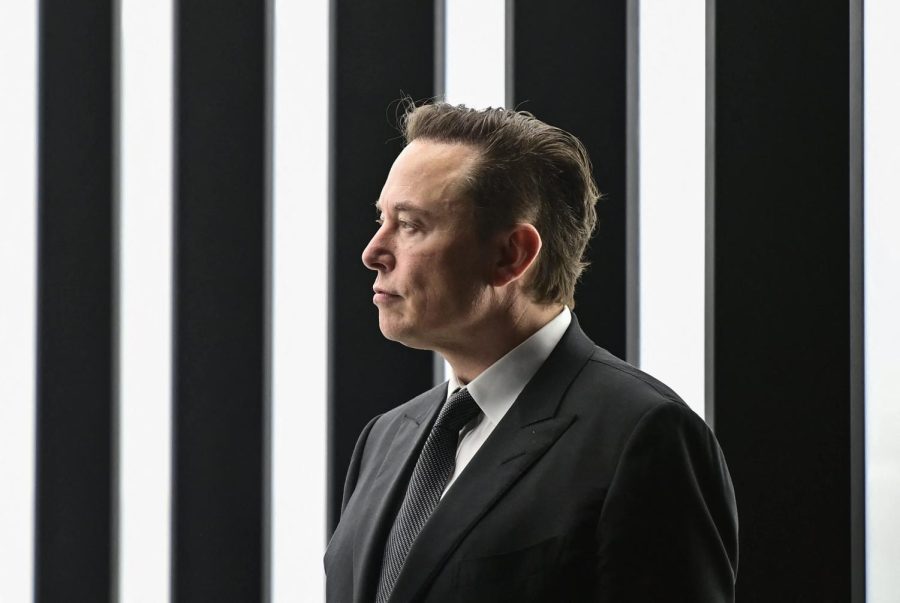Opinion: Musk’s Defense of Free Speech on Twitter is Necessary
Musk’s purchase of Twitter has sparked controversy.
April 27, 2022
Elon Musk bought Twitter. He made it clear that one of his goals is to keep the platform as “the digital town square where matters vital to the future of humanity are debated,” tweeting: “I hope that even my worst critics remain on Twitter, because that is what free speech means.”
Musk is a controversial figure to begin with, yet his purchase of Twitter for $44 Billion has drawn great public outrage. During the rise of yellow journalism and misinformation in the Trump Administration, Twitter cracked down on the spread of misinformation and hate speech, citing many far-right accounts, such as Donald Trump himself, as promoting and inspiring hate and violence on and off the site.
Many of Musk’s objectives have taken a different approach, seemingly wishing to remove many of the safeguards the platform now has in place to prevent such behaviors from gaining a vocal presence.
While I do not condone misinformation or hate speech, Musk is on the right track. Behaviors such as these are, and should be considered by everybody, as unacceptable. However, I do not believe banning this speech is the smartest decision in the long term.
Free speech is a fundamental right in the U.S., which means, in principle, people have the right to say whatever is on their minds.
Hence, people have the right to say harmful, misleading things just as they have the right to say what they think about the newest Star Wars movie, their daily Starbucks order and that the president is incompetent. Twitter was founded on, and is still regarded as, a platform where everybody can have a voice.
Thus, any form of regulation must proceed with an err of caution. While we may coat the argument for banning misinformation and hate-speech with colorful language, the simple truth is that it can have dangerous fallouts. While erasing these comments from the public forum of Twitter is good in the short term, it is bad in the long run.
Such an act establishes a dangerous precedent, a precedent of getting rid of voices that leaders do not like or consider controversial.
What if new Twitter ownership considers LGBTQ+ rights controversial? Or BLM? Or abortion rights?
In line with this current policy, a future board would have the right to exclude these topics from discussion because they are controversial or offensive.
Banning certain perspectives on specific topics sets the standard that the operators of Twitter can act as judge, jury and executioner on what ideas are allowed to be heard, and we are already seeing the effects.
Despite Musk’s offer to reinstate his account, Trump refused. He will now be a part of his own platform: TRUTH Social. The banning of far-right perspectives on Twitter has only led to conservatives conglomerating on their own platform, where they only talk to each-other, receiving constant validation.
When such individuals post their beliefs on the diverse platform that is Twitter, multiple perspectives and political affiliations can disprove of any misinformation and become outlets to educate people, changing opinions.
While everybody has the right to a voice, not all voices should be taken seriously. Removing these unwanted perspectives from the public square does not solve the problem, it only pushes it to somewhere we cannot see it. Constructive dialogue is the only way to effectively combat and destroy offensive behavior.
Now, this does not mean that Twitter has no responsibility to let these perspectives exist without consequence.
The platform already places labels on tweets identified as propagating misinformation and buries tweets riddled with hate-speech deep in the algorithm as to never promote them, with both circumstances having a ‘removal of tweet’ as the most severe course of action.
I would argue to get rid of that removal option, and be more aggressive with labeling.
The offending tweets could be labeled as propagating hate-speech or misinformation, and just like with COVID-19 information, “these labels will link to a Twitter-curated page or external trusted source containing additional information on the claims made within the Tweet,” according to the company.
In the fight against hate speech and misinformation, education, not relegation, is the key to making the public square a more welcoming place to be.


